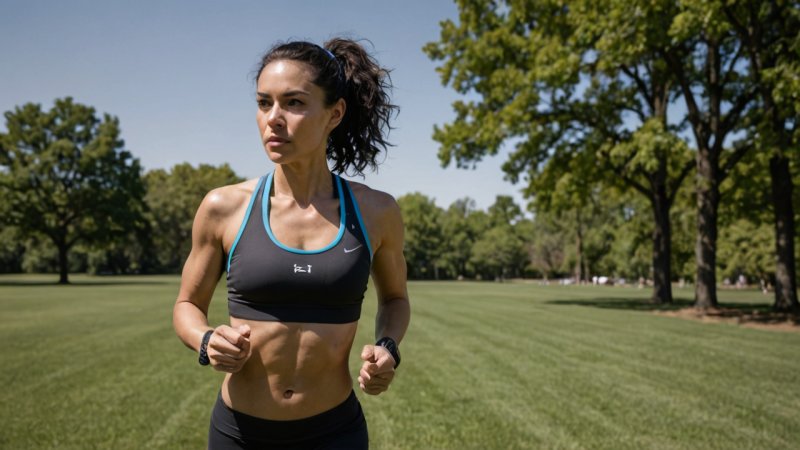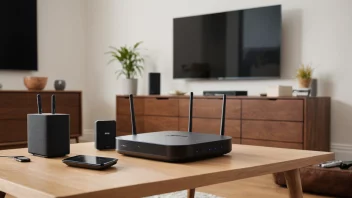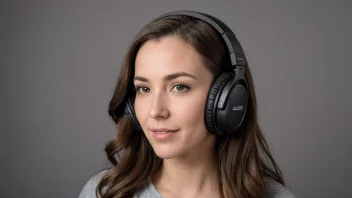In today's competitive sports landscape, athletes are constantly seeking ways to enhance their performance and gain an edge over their opponents. Fortunately, technology has stepped in to offer innovative solutions that cater to both training and recovery. From wearables that track your every move to smart gym equipment that tailors workouts specifically to you, the options are vast. Here’s a look at some of the most impactful tech tools that can help elevate your athletic game.
1. Wearable Fitness Trackers
Wearable fitness trackers have revolutionized how athletes monitor their performance. These devices come equipped with various sensors that can track everything from heart rate to GPS location. Popular options include:
- Garmin Forerunner: Ideal for runners, this watch tracks distance, pace, and heart rate while offering advanced metrics.
- Fitbit Charge: This versatile tracker monitors physical activity, sleep patterns, and offers guided breathing exercises.
- Apple Watch: With its seamless integration to iOS devices, it includes fitness tracking features, heart monitoring, and workout suggestions.
Using a fitness tracker enables athletes to analyze their performance data over time, helping them identify strengths and weaknesses, which is crucial for improvement.
2. Smart Gym Equipment
Gone are the days of traditional gym machines. Smart gym equipment has entered the scene, offering personalized workouts based on user data. Some top choices include:
- Peloton Bike: This stationary bike offers live and on-demand classes while tracking metrics like cadence and output.
- Toneloc: A smart home gym system that adapts to your fitness level, providing personalized workouts and progress tracking.
- Mirror: An interactive fitness mirror that offers a variety of workout classes while tracking your movements.
Using smart gym equipment not only enhances workout efficiency but also keeps athletes engaged with their fitness routines.
3. Recovery Technology
Recovery is just as important as training, and technology has made strides in optimizing this process. Consider incorporating these recovery tools:
- Theragun: A percussive therapy device that helps relieve muscle soreness and improve mobility.
- Normatec Recovery Boots: These compression boots help reduce muscle soreness and expedite recovery by promoting blood flow.
- Hyperice Vyper: A vibrating foam roller that aids in muscle recovery and can help prevent injuries.
By integrating recovery technology into their routines, athletes can enhance their recovery process, ensuring they stay in peak condition.
4. Sports Performance Apps
There’s an app for almost everything, and sports performance is no exception. Here are some apps that can help athletes track and improve their performance:
- Strava: Perfect for runners and cyclists, it tracks distance, speed, and elevation while offering social features to connect with others.
- MyFitnessPal: This app assists athletes in tracking their nutrition and caloric intake, essential for optimizing performance.
- TrainHeroic: A workout app that provides tailored training plans and allows coaches to monitor athlete progress.
Performance apps can empower athletes to stay organized and motivated while providing valuable insights into their training.
5. Virtual Coaching
For those who prefer guidance, virtual coaching platforms provide personalized training plans and expert advice without the need for in-person sessions:
- Future: This app pairs you with a personal coach who customizes workouts and provides feedback via video.
- TrueCoach: Allows athletes to work with their coaches remotely, sharing workout videos and progress updates.
- TrainHeroic: As mentioned before, provides not just tracking but also access to coaches for support.
Virtual coaching can make high-quality training accessible and convenient, allowing athletes to progress at their own pace.
In conclusion, technology plays a pivotal role in enhancing athletic performance through various innovative tools. From wearable fitness trackers that monitor real-time data to smart gym equipment offering personalized workouts, athletes can leverage these advancements to improve their training and recovery. Sports performance apps provide insights into nutrition and progress, while virtual coaching makes expert guidance accessible. By incorporating these technologies into their routines, athletes can not only maximize their performance but also enjoy the journey toward their fitness goals.






